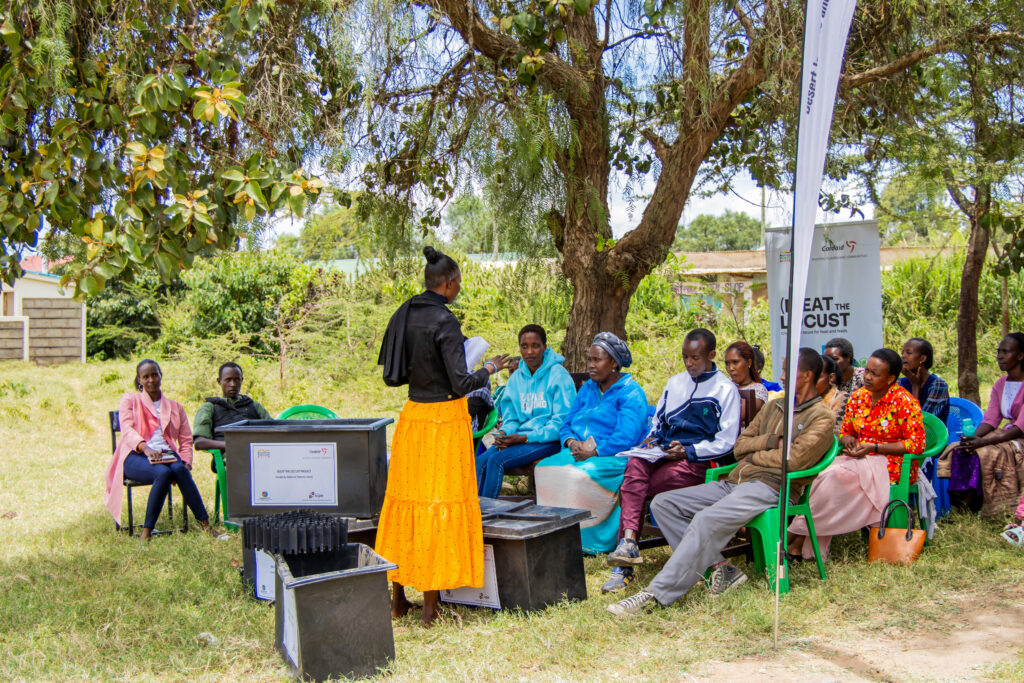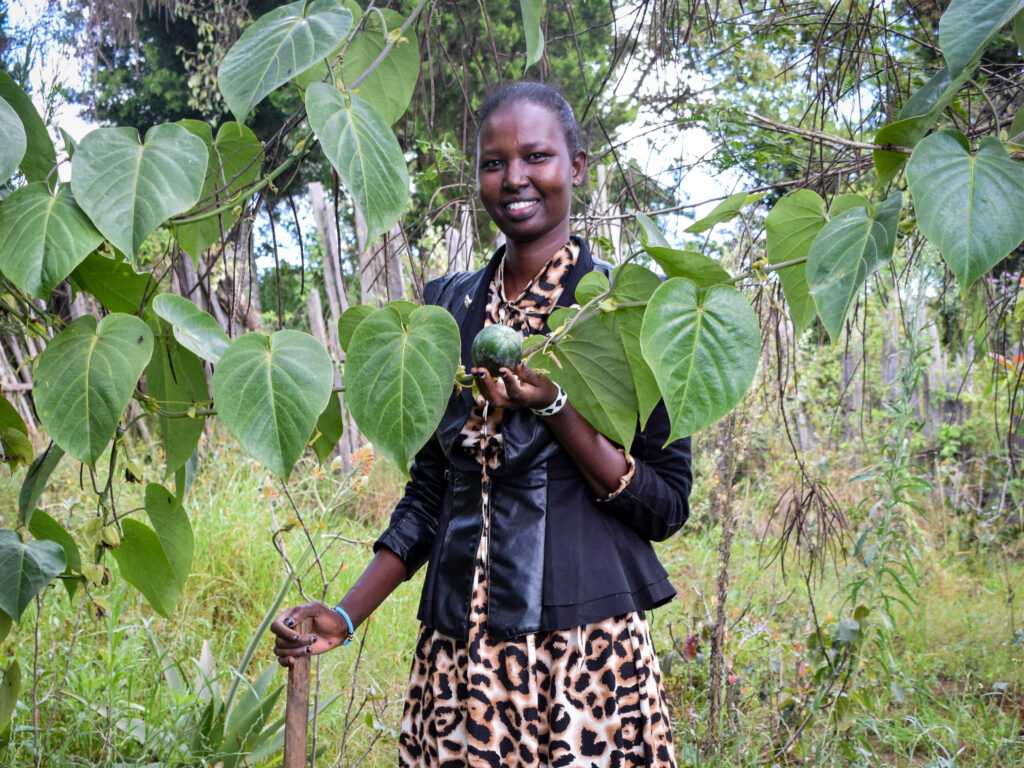In the arid plains of northern Kenya, (B)eat the Locust, a climate-resilience programme implemented by Cordaid and IMPACT Kenya, equips local communities with eco-friendly alternatives to pesticides and empowers women to lead in a traditionally male-dominated landscape.

In Samburu County, patriarchal structures and traditions define daily life, which means girls and women are often denied equal access to education, employment and leadership.
Traditional Roles
Growing up in a traditional Maasai homestead, 31-year-old Priscilla Senteina Lekurtut experienced the harsh conditions of pastoralist life. She was expected to spend long days herding livestock, often with only wild fruits to sustain them until the evening meal.
‘In my community, women own nothing. All livestock belongs to the men. Families value the boy child more than the girl child,’ she explains.
Her parents, recognising she was unsuited for the traditional role laid out for her, sent her to school. Priscilla completed her secondary education and went on to earn a university degree in human resource management.
‘The training opened my eyes to what I might otherwise have missed. I grew up seeing only men in leadership roles. Now I know women can lead too.’
A Passion for Sustainable Farming
After graduating, she secured a scholarship to study permaculture design. That training, along with her subsequent work at the Laikipia Permaculture Centre, ignited a passion for sustainable farming.
Motivated to give back, she returned to Samburu to establish a model farm on her five-acre plot. To date, she has planted over 3,000 trees of 20 different species, transforming her land into a community learning hub.
Becoming a Role Model
‘The beginning of this journey was difficult for me as a female pastoralist because it involved using unfamiliar tools and cultivating the land,’ Priscilla says. ‘However, I recognised that this was an opportunity to become a role model for my community.’
She started by planting trees, setting up seed nurseries, and visiting nearby forests to learn about indigenous species. Kitchen gardens and reforestation efforts followed, and soon, other women in the community began to notice.
‘Engaging in permaculture practices, such as creating kitchen gardens and planting indigenous trees, has brought about positive changes in the community.’

The Effects of Deforestation
Her initiatives have not only enhanced local diets by encouraging families to grow organic vegetables but also increased environmental awareness. More families are now planting trees after witnessing the effects of deforestation on rivers, community wells, and rainfall.
Priscilla’s influence grew significantly when she became involved with the (B)eat the Locust project. The project was established in response to Kenya’s recent desert locust invasions, aiming to shift the focus from synthetic pesticides to sustainable insect-based solutions.
In 2024, she was chosen as one of 64 leading entrepreneurs trained through the initiative. She quickly became a prominent mentor and coach, especially for women’s groups interested in rearing crickets for food and animal feed.
‘Nature has a way of reciprocating. When we care for our land, it will give us back abundant vegetation and increased food production.’
Cricket Rearing
Through the Pastoralist Syntropic Dryland Centre, a group she co-founded in Laikipia County, Priscilla now leads over 100 women. The group comprises five sub-groups, all of which have been trained in cricket rearing and are now instructing others in turn.
Priscilla: ‘The training opened my eyes to what I might otherwise have missed. I grew up seeing only men in leadership roles. Now I know women can lead too.’
Blending Knowledge and Science
Her work extends beyond insects. Priscilla also supports women’s groups in marketing honey, utilising her networks and social media to help them become more financially independent.
On her model farm, she has installed a borehole that supplies the community with clean water at no cost. She champions biopesticides as a safer environmental alternative to synthetic chemicals, blending traditional knowledge with scientific methods.
‘Nature has a way of reciprocating,’ she says. ‘When we care for our land, it will give us back abundant vegetation and increased food production.’
About (B)eat the Locust
The (B)eat the Locust project emerged in response to the most recent desert locust invasion in Kenya, which caused significant environmental damage due to the heavy use of synthetic chemicals.
Funded by the Postcode Lottery, the project promotes sustainable alternatives through insect-based value chains. It works across four arid and semi-arid counties—Laikipia, Samburu, Isiolo and Marsabit—supporting pastoralist communities in adopting biopesticides, rearing insects for food and feed, and building climate-resilient livelihoods.
This project is supported by
